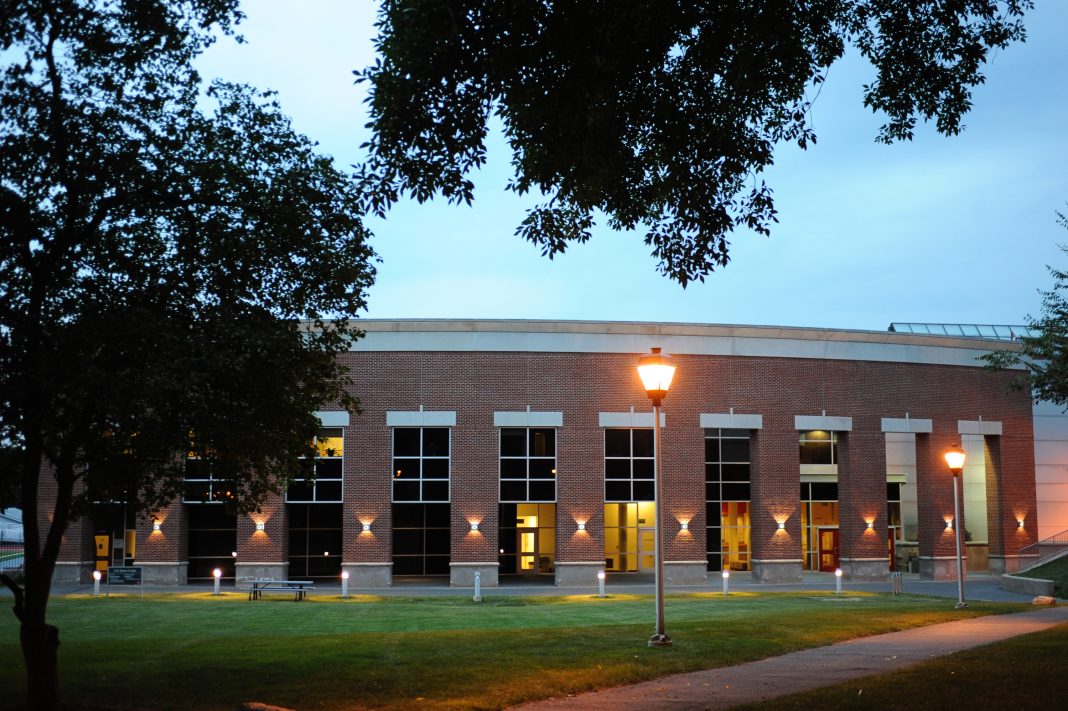In the depths of the Life Sports Center (LSC) lies the unknown and underutilized space known as the Muhlenberg swimming pool. In clear view from the upstairs level of the LSC’s gym, one can see the few people that come to swim laps each day and the lifeguards that keep watch from their designated posts. However, while the space may be a great place to get a workout in, the Muhlenberg student body is relatively unaware of its presence.
With sporadic hours during the weekday, the Muhlenberg pool area is rather inaccessible. With little time dedicated to open swim — only a short one-hour timeframe — the Muhlenberg community is severely limited in the time one can take advantage of the pool facilities. No one knows the hardships of planning and scheduling times to go to the pool more than Madeleine Kemo ‘22, former president of the Swim Club.
“There aren’t a lot of options for open swim hours,” Kemo said plainly. In addition to the inopportune times of open swim, much of the pool time relies upon other outside organizations. “The hours being dependent on other teams from club organizations makes it difficult for people who want to swim to find good times, and so the limited options, combined with the number of people I needed to contact to coordinate group meetings, made it very difficult to have everyone in the swim club meet at the same time,” she added.
In addition to the struggles of timing, Muhlenberg’s pool prevents the creation of an official swim team. As Kemo said, the current pool would only put Muhlenberg at “a severe disadvantage.” This is due to the fact that “our pool is not regulation size, so not only would we not be able to host meets, we would also be at a disadvantage in other pools … [since] we would have been training for a different distance,” Kemo explained. Muhlenberg’s pool also lacks the essential starting blocks and timing pads needed for competitive swimming.
Kemo’s experiences as the Swim Club president speak loudly to the unfortunate issues of the Muhlenberg pool. However, Kemo is not the only one who understands these problems; members of Muhlenberg’s faculty do as well. For Sharon Albert of Muhlenberg’s religion studies department, this is something about which she is extremely passionate.
Having started to swim seriously when she was training for a marathon, Albert loves the pool. “Swimming is an incredibly holistic fitness activity. It provides both aerobic and anaerobic exercise, has many health benefits and a relatively low risk of injuries,” Albert said.
“On days when I’m not up to a hard workout, swimming can even be a meditative experience,” she added.
Albert acknowledges the amazing pool at Muhlenberg, but at the same time, she is all too aware of its issues. Like Kemo, Albert understands that “the pool is not open nearly enough, and even the fairly limited scheduled hours tend to be irregular.”
With better hours, Albert believes that the pool area will without a doubt become a more utilized space. “In fact, this fall the pool was open Monday through Friday 6:30-8:00 a.m., the first time in my memory that there were as many hours in the morning and as consistent. As people found out that the pool was open consistently, more and more people started using it, and by the end of the semester, we were often needing to share lanes,” she explained.
Albert is not the only faculty member who is passionate about these problems and constantly uses the facilities. “There are a number of faculty and staff who use the pool as regularly as they can. Although we don’t all know each other, there are about 30 of us who are in regular conversation about these issues,” Albert said.
Following the reduction of pool hours from 5 days a week in the fall to 0 in the spring, Albert and many others vocalized their frustrations to the Athletic Department leadership. While some changes were made, budgeting was a main issue.
Both Kemo and Albert have ideas for the ways in which the school can fix these problems that currently exist at the LSC pool.
“I’d love to see the College position the pool as a health and wellness resource for faculty, staff and students and adjust budgeting lines accordingly so that the choice doesn’t become student athletes or the pool, but we find money for both,” said Albert. “I can also imagine ways in which the pool might become an income-generator for the College. For instance, we could open it up to local alumni or community members for a fee,” she continued.
“I think that longer times for open swim would be beneficial for swimmers to get in a full workout without having to skip certain exercises they want to do because of time restrictions. I also think that the location of the pool could be advertised more,” said Kemo.
While the Muhlenberg pool may be rather unknown to the community-at-large, the space is flooded with potential. From injury recovery for student-athletes to traditional exercise to meditative practices, the swimming pool can present a plethora of opportunities. The next step is to effectively publicize and open up those worthwhile opportunities to the College and Allentown communities as a whole.
Alex Blum '22 graduated with a degree in Media & Communication and English.






















